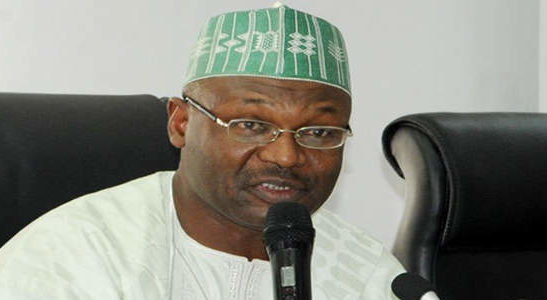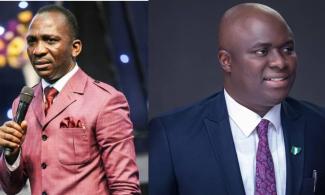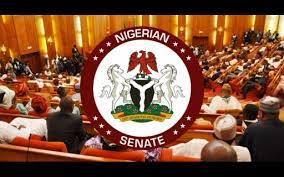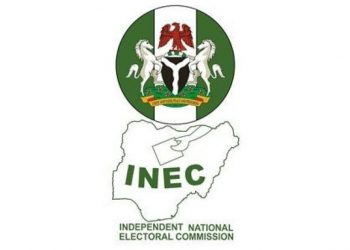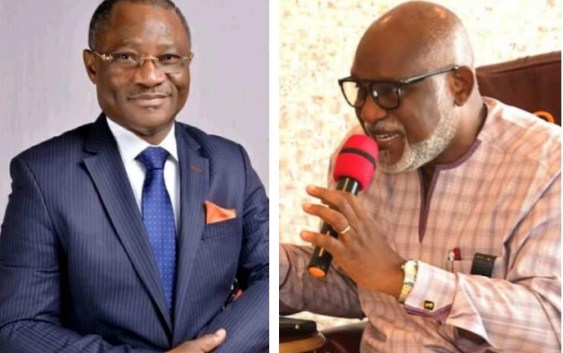Chairman of the Independent National Electoral Commission (INEC), Prof. Mahmood Yakubu, has decried the low representation of women in Nigerian politics.
According to him, although women constitute 49 per cent of Nigeria’s voting population, the national average in female representation stood at 6.7 per cent.
Yakubu, made the disclosure at a workshop on “INEC’s Role in Enhancing Women’s Participation in the Electoral Process: Creating Synergy amongst Women Politicians, Scholars and Activists’’ held on Wednesday in Abuja.
The INEC Chairman who was represented by a National Commissioner, Adekunle Ogunmola, said that Nigeria’s national average of 6.7 per cent in female representation was in contrast to the global average of 22.5 per cent in 2018 adding that the figure was one of the lowest amongst the countries in the ECOWAS region, especially when compared to Ghana, 10.7 per cent; and Togo, 17.6 per cent.
“In 2015, eight female Senators, 20 House of Representatives members and six female Deputy Governors who had joint tickets with male gubernatorial candidates were elected.
“Similarly, only one female contested for the office of President, while four presidential candidates had females as their Vice.
“Global statistics for gender parity indicate that in 2015, out of 188 countries, Nigeria was 152nd in the Human Development Index on Gender Inequality and 118th of 192 countries in 2017.
“Thus, female representation remains low in our national life, and we need to take urgent measures to improve this profile especially in view of the UN’s Sustainable Development Goals (SDGs).
“From the foregoing, a lot needs to be done by all stakeholders to ensure that more practical, effective, sustained and inclusive programmes of action designed at deepening the participation of women in our political and electoral process are designed.’’
READ ALSO: Don’t impose presidential candidate on PDP, Kalu warns Wike, Ihedioha
Yakubu said that one of the key objectives of the conference was to explore ways of creating bridges between women politicians, scholars and activists in Nigeria noting that it was important so that synergies could develop in the collective effort to expand inclusivity by deepening the participation of women in the electoral process.
The INEC Chairman said further that strengthening women’s rights, addressing their barriers to political participation and expanding civic spaces are critical to deepening democracy.
Yakubu pointed out that countries with higher levels of women’s participation and leadership in political and electoral processes tend to be more inclusive, responsive, egalitarian and democratic.
He lamented that women around the world were still largely absent from national and local decision-making processes and faced enormous exclusionary mechanisms that had become serious barriers to participation.
“From discrimination and violence to lack of support and resources, women face countless barriers to participation in civic and political arenas.
“Strengthening women’s rights, addressing barriers to political participation and expanding civic spaces are thus critical to the deepening democracy.
“This is precisely why the United Nations current global development agenda as embodied in the Sustainable Development Goals (SDGs) placed priority on greater gender equality through the creation of avenues for more effective participation for women in the political and electoral processes.’’
In his remark, the President, European Centre for Electoral Support (ECES), Monica Frassoni, said that the task of ensuring women participation in the political system was a collective task of all electoral stakeholders.
This according to her, includes INEC, political parties, women politicians, scholars and women Civil Society Organisations activists.
“Nigeria has done a lot in engaging the women demographic; however, there is still need to do more in meeting global agenda on increased participation of women in the political process.
“For example, the percentage of women in the upper house or senate as at January 2017 was 6.5 per cent in Nigeria; 63 per cent in Rwanda; 35.2 per cent in South Africa (and Sudan) and 24.1 per cent.
“It was also 24.1 per cent; 25. 8 per cent ; 16.4 per cent ; 17.6 per cent ; 19.4 per cent and 10 per cent in Somalia, Lesotho, Equatorial Gunie, Garbon, Congo DRC and Liberal, respectively.’’
Frassoni said there was need to forge synergy between the activities of these diverse stakeholders in order to maximise outcomes, nurture consensus standpoints and ensure speedy implementation of programmes.
She described the workshop as timely response to the imperative of ensuring active participation of women in the electoral process both as candidates and voters.
